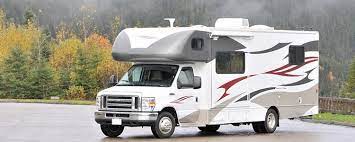Home insurance, often known as hazard insurance, protects your home and belongings against specific hazards or perils. While hazard insurance is not a state requirement, it is normally required if you have a mortgage. Even if your home is paid off, having a homeowners insurance policy in place can help you pay for damage to your home and belongings caused by insured losses. Before purchasing hazard insurance, it is critical to understand what it is, what it covers, how much it may cost, and what type of coverage you should purchase.
What Is Hazard Insurance?
Hazard insurance safeguards your home against natural disasters or risks. Hazard insurance is frequently required when applying for a mortgage. Some areas additionally require the purchase of a Natural Hazard Report, also known as an NHD report, which indicates if your property is located in a natural hazard zone or a high-risk area. Fires, strong storms, hail, sleet, and other natural disasters are examples of potential hazards.
Fires, strong storms, hail, sleet, and other natural disasters are examples of potential hazards. Assume someone has hazard insurance and the precise natural phenomenon that occurs is covered by their coverage. The homeowner will be paid for the damage to their property in that situation. Even if a property is not in a high-risk region, having hazard insurance to protect your property and funds is a good idea.
How Hazard Insurance Works
If your home sustains damage that you believe should be covered by hazard insurance, the first step is to file a claim with your insurance company. Include images or video of the damage, as well as as much information as possible about what you lost.
Once your claim is approved by the insurer, your payout is determined by how much the damage will cost to repair, the amount of your dwelling coverage limit, and the amount of your deductible.
A deductible is the portion of a claim for which you are accountable. Assume you’ve chosen a $1,000 deductible and a thunderstorm produces $5,000 in roof damage. Your insurance company will pay $4,000, and you will cover the remainder.
Your home’s policy may have two deductibles: one for most claims and one for specific risks like windstorms or designated hurricanes. Details can be found on the declarations page of your policy.
Is Hazard Insurance the Same as Homeowners Insurance?
Hazard insurance is a subset of homeowners insurance, not a different type of coverage. As a result, it’s vital to note that lenders refer to hazard insurance separately, despite the fact that it’s a component of a homeowners insurance policy that covers most natural disasters.
What is Covered Under Hazard Insurance?
Hazard insurance may provide coverage for “hazards” such as:
#1. Fire Destruction
Hazard insurance should cover any damage to your home caused by a fire. If the damage is severe enough that you must evacuate your home, you will also require loss of use coverage to cover accommodation and other associated costs.
#2. Hail
People usually equate hail damage with vehicles, but it may also cause damage to residences. If it causes damage to yours, your hazard insurance should cover it.
#3. Lightning
When it comes to storms, you may think of water damage first, but lightning strikes can also inflict significant damage. Fortunately, lightning damage is frequently covered by hazard insurance.
#4. Damage
Damage can enter your home in a variety of ways. Many of them are covered by hazard insurance, but others necessitate the purchase of separate policies.
#5. Theft
Hazard insurance may cover damage to your home’s structure caused by theft. Your homeowner’s coverage will also generally protect your belongings in your home from theft.
#6. Vandalism
Hazard insurance may cover the costs of vandalism damage to your home.
#7. Trees that have fallen
Damage to the structure of your home caused by falling trees may be covered by your hazard insurance.
#8. Vehicles that collide with your home
A car crashing into your home can cause significant structural damage. The costs of repairing it may be covered by hazard insurance.
#9. Explosions
Explosions, which are mainly caused by gas leaks, can cause extensive structural damage to dwellings. Fortunately, explosion damage is typically covered by hazard insurance.
What Is Not Covered by Hazard Insurance?
Flood damage is often not covered by hazard insurance. To protect your home, you will need to acquire a separate flood insurance policy.
How Much Hazard Insurance Do You Require?
In general, you should purchase enough hazard insurance to cover the whole cost of reconstructing your home if it is destroyed.
Keep in mind that this figure, known as your home’s “replacement cost,” isn’t always the same as the purchase price. It is instead based on the projected cost of materials and labor required to reconstruct the house to pre-disaster condition. Your insurer can assist you in determining the appropriate amount.
Consider one of the following optional forms of coverage for added peace of mind:
- Extended Replacement Costs: When a storm or wildfire causes widespread damage in a particular region, local construction costs often rise as a result of increased demand. If this occurs, your replacement cost coverage may be insufficient. Extended replacement cost coverage protects against such gaps. In the event that costs exceed expectations, you may be able to choose an amount ranging from 10% to 50% above your coverage level.
- Guaranteed Replacement Cost: Going a step further, guaranteed replacement cost coverage pays the difference between the dwelling coverage maximum and the cost of rebuilding your home.
How Much Hazard Insurance Do You Need?
The cost of homeowners insurance is determined by a number of factors, including the value of your home, policy limits, and deductible amount. Learn more about how home insurance rates are determined.
Dependable homeowners insurance coverage is the way to go for optimum protection against the unexpected. You can also add optional coverages like flood insurance or personal umbrella insurance to Nationwide’s customizable policy.
Insurance words, definitions, and explanations are provided solely for informational purposes and are not meant to replace or amend the definitions and information contained in specific insurance contracts, policies, or declaration pages, which are the controlling documents. Such terms and availability may differ from state to state, and exceptions may apply. Discounts are not always applicable to all policy coverages.
Who Should Think about Hazard Insurance?
Hazard insurance is included in all conventional homeowners policies, however, it may be more advantageous to homeowners in specific areas. Homeowners in states with a high risk of natural disasters, in particular, are more likely to file a hazard insurance claim.
Hazard insurance protects homeowners from windstorm losses in hurricane-prone states such as Florida, Louisiana, Texas, North Carolina, and New Jersey. Hazard insurance provides financial protection from tornado damage in Midwestern areas such as Oklahoma, Nebraska, and Kansas.
When Buying Hazard Insurance, What Should You Look For?
Because hazard insurance is included in your homeowners’ policy, you’ll want to make sure it’s as comprehensive as possible. However, not all policies are created equal. The simplest method to deal with it is to ask yourself what you require coverage for and then ensure that any plan you select contains it.
If you reside in an earthquake, mudslide, or landslide-prone location, or if you live in a floodplain, you may need to obtain supplemental coverage in addition to standard hazard coverage. Most private insurance carriers sell earthquake insurance and flood insurance.
What Companies Provide Hazard Insurance?
Hazard insurance is provided by any property insurance that provides homeowners coverage. Small and large national home insurance firms are included. Check around to see which companies serve your state or location, and then proceed from there. A local independent insurance agent can assist you in obtaining various quotations in order to compare coverages and premium prices. When beginning your insurance purchasing journey, you can also use online quoting tools.
How to Obtain Hazard Insurance
The majority of major insurers provide home plans that incorporate hazard insurance. You can seek home insurance quotes online or hire an independent insurance agent to do the legwork for you. To get the best deal, compare quotes from at least three insurers.
What is Mortgage Hazard Insurance?
If hazard insurance is deducted from your mortgage payment, it usually implies you’re paying your home insurance premium through an escrow account. In other words, your lender is collecting and paying your insurance debt on your behalf.
Is Hazard Insurance Deductible From Taxes?
Hazard insurance is normally not tax-deductible if the location covered is your primary home. If you purchased hazard insurance for a rental property, you may be allowed to deduct the premiums on your taxes.
What Is Hazard Insurance on My Mortgage?
When you make a mortgage payment and a portion of that payment goes toward hazard insurance, it almost often indicates that you are paying for your homeowner’s insurance premium through an escrow account. To put it another way, your lender is the one responsible for collecting the premium payments that you do and making the payments on your behalf.
Is Hazard Insurance Required on a Mortgage?
Is it necessary to get liability insurance? If you have a mortgage, your lender will almost always require you to obtain hazard insurance if you own a home in the United States. Getting this need satisfied through the purchase of a regular homeowners insurance policy is typically sufficient. However, if you live in a high-risk location, you will likely also be required to purchase flood insurance.
Can I Remove Hazard Insurance From My Mortgage?
When you reach the date when the principal balance of your mortgage is anticipated to decrease to 80 percent of the original value of your house, you have the right to request that your servicer cancel your PMI. This right is only available to you if you have reached the date. When you got your mortgage, a PMI disclosure document should have been handed to you with this date written down on it.
Why Would Hazard Insurance Go Up?
Rising inflation implies that homeowners need more dwelling coverage to pay for the expenses of rebuilding their houses. As a result, insurance firms are raising rates in order to make up for the billions of dollars in losses that have been caused by the intensification of climate-related disasters. The impact of all of these things has combined to produce some quite significant price hikes in the year 2023.
Can I Cancel Hazard Insurance?
Canceling your homeowner’s insurance coverage at any time is possible, and doing so entitles you to a return of any unused premiums paid for the policy. The vast majority of significant insurance providers offer refunds on a prorated basis, which means that you can cancel your policy at any time and get a reimbursement for any unused policy premiums.
Conclusion
Homeowners’ insurance includes hazard insurance. Hazard insurance may or may not provide all of the coverage you require, depending on where you reside and your needs. As a result, it is prudent to consult with your insurance agent and mortgage lender to verify that you have adequate coverage to protect your property.
Hazard Insurance FAQs
Is there a difference between homeowners insurance and hazard insurance?
While hazard insurance only protects your home’s structure from destructive occurrences such as windstorms and fires, a homeowners insurance policy covers personal property, loss of use, liability, and medical costs to others.
How do I remove hazard insurance from my mortgage?
Once you obtain a new or restarted homeowner’s insurance policy, email proof of coverage and any other information asked by your mortgage servicer to your mortgage servicer. As soon as possible, request that your mortgage servicer terminate the force-placed insurance coverage it got for you.
Can you claim hazard insurance on your taxes?
Homeowner’s insurance, including hazard insurance, is a personal expense that is not deductible for a personal home. You can deduct insurance as a cost (insurance category) if you own a rental property, but not property taxes.
Related Articles
- AVERAGE HOME INSURANCE COST: Best 2023 UK Practices and Rates (Updated)
- Escrow on a Mortgage: Understanding the Escrow Process & Requirements
- CAR INSURANCE DEDUCTIBLE: How It Works
- Complacency: Definition, Meaning, & Quotes
- 4 WAYS TO PROTECT YOUR BUSINESS FROM FIRE DISASTER






